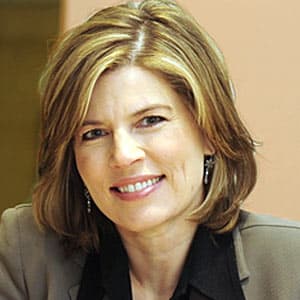Advertisement
'Short-Changed Their Entire Working Lives': A Look At The Wage Gap On Black Women's Equal Pay Day
Resume
Despite working in foodservice and hospitality for 60 years, Venorica Tucker can’t retire right now.
The 72-year-old says she needs to keep working to pay her bills and buy food. She even jokes that she’ll retire 15 minutes before her death.
“I've got two grandchildren. I would love to do what most people do with their grandkids, you know, take them on vacations, do fun things with them,” she says. “It just looks impossible.”
Tuesday marks Black Women's Equal Pay Day, which indicates how far into 2021 Black women like Tucker need to work to earn the same wages white, non-Hispanic men made in 2020.
The wage gap persists between men and women in the U.S. — and it's even wider between Black women and white men. And this pay discrepancy leads to a wealth gap over the course of a career, says Fatima Goss Graves, president and CEO of the National Women's Law Center.
As the wage gap grows over time, it leaves many Black women with little to no savings at the end of their lives, she says.
“For Black women in this country, in particular, the wage gap … increases their inability to retire, increases their inability to save,” Goss Graves says. “They are short-changed their entire working lives and then they are short-changed into retirement.”
The impact of the wage gap adds up: Black women lose $2,000 per month, $24,000 annually and $964,000 over the course of a 40-year career. Hearing the total number of nearly $1 million in lost wages makes Black women think about how that “life-changing money” could impact their family over generations, Goss Graves says.
The gender wage gap exists in low and high-paid jobs across 94% of occupations. And the fact that Black women are more likely to have low-wage jobs — which were the first jobs cut during the pandemic — widens the gap, she says.
Black women are more likely to be frontline workers, she says, and the pandemic left them without reliable child care. Some had to leave the workforce to care for their families, while many others were laid off from sectors that haven’t fully recovered.
“Even as Black women are looking for work, will they be pressed into grabbing the first job offer they can get even if the pay is too low, even if the conditions aren't right?” Goss Graves says. “That's the sort of pressure not having an ability to save puts on you.”
Prior to the pandemic, hospitality worker Tucker juggled multiple banquet server and bartender jobs in Washington, D.C. People would come from out of town and the country to attend these events, so she predicts the banquet industry will take a while to come back.
“I don't have no savings. My coworkers don't,” Tucker says. “And we're struggling to try and find a way to be, you know, able to take care of ourselves.”
Tucker says she “can’t get ahead” financially under these circumstances.
A group of her coworkers found a way to defer their rent or mortgage payments for several months — but none of them have the money, she says. Tucker believes large numbers of people will soon face eviction.
On top of housing costs, Tucker owes $500 on her water bill and various other expenses. And despite her lack of good credit or savings, she needs to move soon. She hopes to avoid becoming homeless.
“It was a struggle throughout life,” she says, “but it was never like this.”
People need to keep stories like Tucker’s in mind when making decisions like whether to raise the federal minimum wage, Goss Graves says.
Education often gives women an economic advantage, but the wage gap for Black women gets wider for those with college and advanced degrees. This counterintuitive fact demonstrates that even Black women in the highest-paying fields — lawyers, doctors, businesspeople — earn fewer wages at every step of their career, she says.
“Some of [the wage gap] is the concentration of jobs. And you have to focus on that,” she says. “But some of it is good old-fashioned stereotyping and undermining of Black women's ability to reach their full potential at work. And that's a harder conversation to have.”
Raising wages and passing the Paycheck Fairness Act to give people who experience pay discrimination tools could help close the gap, she says. And Congress has an opportunity to help make this change with the $1 trillion infrastructure bill.
“We can't limit that investment to sort of the physical hard infrastructure,” she says. “We have to ensure it includes support for families, things like the child tax credit. We have to ensure it includes a major investment in child care and paid leave.”
Tucker wants lawmakers to know people in her situation aren’t lazy or lacking self-sufficiency. In fact, she says she’s been working hard since she got her first job at a concession stand in the Arena Stage Theater in D.C. at age 12 or 13.
And when one job wasn’t enough, she started working two or three.
“I do that because that's the only way to survive,” she says. “You can't give your family the time that they need and deserve.”
Julia Corcoran produced and edited this interview for broadcast with Chris Bentley. Allison Hagan adapted it for the web.
This segment aired on August 3, 2021.

